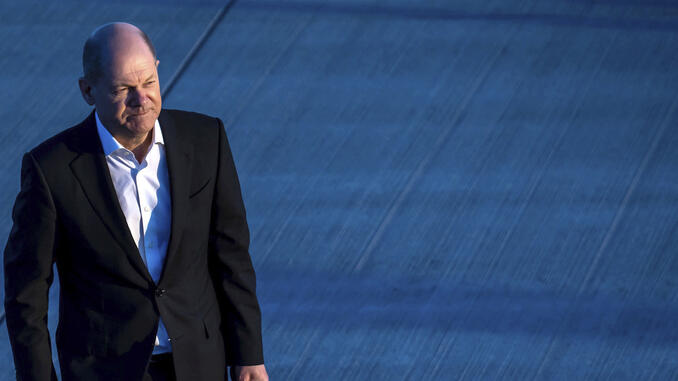
“There are decades where nothing happens—and there are weeks where decades happen.” This is a suitable quote describing the events of the past week which saw the world convulse as Vladimir Putin invaded Ukraine. The quote is from a different Vladimir—Vladimir Lenin. Putin perhaps had these words in mind about what he wanted to accomplish when launching the invasion. It has indeed been a week where decades worth of change has happened, but undoubtedly not in the way he had imagined. His goal certainly was of gloriously returning Ukraine to a Russia more powerful and more respected, even more feared, than ever—with its enemies in the West laying divided and weakened like never before. Instead, in less than a week, the West smashed the Russian economy with a wall of sanctions while Ukrainians pulverized and humiliated the Russian army in its streets—crippling the invasion and bringing it to a slow bloody crawl that will have far reaching effects. All the progress post-Soviet Russia had accomplished in three decades had been obliterated. Europe and NATO stood in lockstep solidarity against Russian aggression. Surely, Putin never imagined he would change the world in this way. And he undoubtedly would have never calculated the change that came from Germany once his invasion was underway.
Going into Ukraine, Putin likely thought he knew Germany well. After all, he spent 5 years as a Soviet KGB officer in Dresden. He knew a pacifist Germany would keep NATO and the West divided. He had read all the western complaints about Germany repeatedly falling far short of the goal set by NATO that their members spend at least two percent of their GDP on defense funding. The country even had a long-held policy of not sending any weapons it produced to warzones. Indeed, with Germany’s history in both world wars, the country seemed afraid of its own shadow when it came to anything martial. Without a doubt, Otto von Bismarck would be rolling in his grave.
Germany for decades has pursued the diplomatic policy of Ostpolitik that works to embrace a relationship with Russia. Angela Merkel, while trying to mediate between Ukraine and Russia in 2015, tried to hold a firm line with Russia in the Minsk Agreements, yet went ahead and rewarded Russia’s illegal annexation of Crimea by agreeing to go forward with the $11 billion Nord Stream 2 pipeline that would make Germany even more dependent on Russian natural gas. It was a move that did not seem strategically sound because Russia’s past use of its oil and gas exports as a weapon. The approval of the pipeline was received with condemnation among Germany’s allies, most notably, the United States. Even Merkel’s predecessor, Gerhard Schröder, currently sits on the boards of several Russian oil giants. Schroeder is not shy in anyway of his very close relationship with Putin.
If Putin had any doubts about Germany’s new leader, Chancellor Olaf Scholz, he was soon put at ease. From the moment he took office, Scholz seemed to embrace a continuation of German foreign policy. With Putin amassing his military on Ukraine’s borders, Germany sat on the fence. It even stopped the shipment of old military equipment from the Netherlands and Estonia for Ukraine to defend itself. The New York Times ran with a headline, “Where Is Germany in the Ukraine Standoff? Its Allies Wonder.” Facing pressure from allies to do more to help Ukraine, Germany soon found itself pilloried for offering Ukraine a measly 5,000 helmets to defend itself. The German Defense Minister, Christine Lambrecht, announced the gesture to much derision saying, “It’s a clear signal: we are on your side.” Former boxer and current mayor of Kyiv, Vitali Klitschko, reacted by saying, “Five-thousand helmets is an absolute joke. What support are they going to send next? Pillows?”
It was another boxer, this time Mike Tyson who once said, “Everybody has a plan until they get punched in the mouth.” This is exactly what happened to Putin once his invasion started. Certainly, he did not plan for how Ukraine and the West fought back. Germany, his planned wedge in the Western alliance, acted decisively against the Russian invasion. Immediately Olaf Scholz ended the ban on exporting weapons to Ukraine. He then halted finalization of the Nord Stream 2 pipeline. During a special session of the Bundestag, where every word Olaf spoke was history in the making, he announced Germany was no longer favoring deterrence over conflict with a one-time increase in military spending of $100 billion and a permanent military spending of two percent annually of its GDP. “At the heart of the matter is the question of whether power can break the law,” Scholz said. “Whether we allow Putin to turn back the hands of time to the days of the great powers of the 19th century. Or whether we find it within ourselves to set limits on a warmonger like Putin.” As sanctions ratcheted up, Olaf in the coming days made his thoughts known on Gerhard Schröder’s position on the boards of Russian oil giants, “I find that it is not correct for Gerhard Schröder to hold these offices. And I think it would be correct for him to give them up.” Embarrassed by their boss’s refusal to give up his role on the boards, Schröder’s entire staff resigned in protest.
